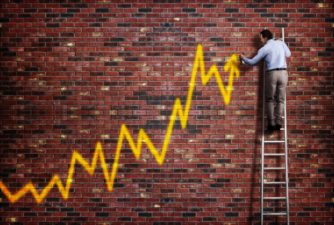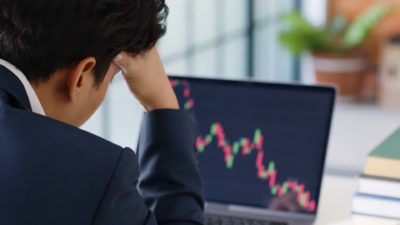Picking the top or the bottom of a share market has always been a dangerous game. Those who manage it (even once) are lauded as 'share market gurus' and are seemingly given license to predict future share market events forevermore. Yet, fuelled by our insatiable appetite for trying to predict the future, investors persist at these attempts.
Still, there's a difference between purely trying to call the top or bottom of a market and highlighting risk factors that one might see in today's investing environment.
According to reporting in the Australian Financial Review (AFR), that's exactly what one leading fund manager is attempting to do. The AFR reports on Peter Morgan, a leading fund manager that managed to grow Perpetual from managing $70 million to $7 billion during the 1990s.
Mr Morgan does indeed see some danger signs across global markets right now, saying, "No one rings a bell at the top but I think we are getting closer to midnight in terms of where the US market is".
Morgan says that the volatility seen in global markets during March and April was unlike anything he has seen and very different to the 1987 share market crash, the dot.com bubble in the early 2000s and the global financial crisis in 2008. He warns that, "a lot of the market seems to be trading on news and not fundamentals. Which is a dangerous sign".
What does this mean for ASX investors?
The observation that shares are trading on 'news and not fundamentals' is a concerning one in my view. As legendary investor Benjamin Graham once said, "a stock market is a voting machine in the short term and a weighing machine in the long term". In other words, it always comes back to fundamentals.
In terms of danger signs ahead for the ASX, Morgan has this to say: "The biggest concerns that I've got with regard to markets is you've still got a lot of stimulus to unwind, not only in Australia… I am still of the view that it's still early days."
Here's what I think investors should take from this. Have a look at the companies in your portfolio and how their fundamentals are looking in 2020 so far. That's revenue, expenses, earnings, and profits.
How have they performed? Is there a good chance that the company will be 'back to normal' next year or the year after? How will your companies respond to a wind down of government stimulus? These are all questions that I think need to be asked this year.
Morgan is right, in my view. There will come a time when the 'clock strikes midnight' and markets return to fundamentals. To quote Bruce Springsteen, "It's just winners and losers and don't get caught on the wrong side of that line".








